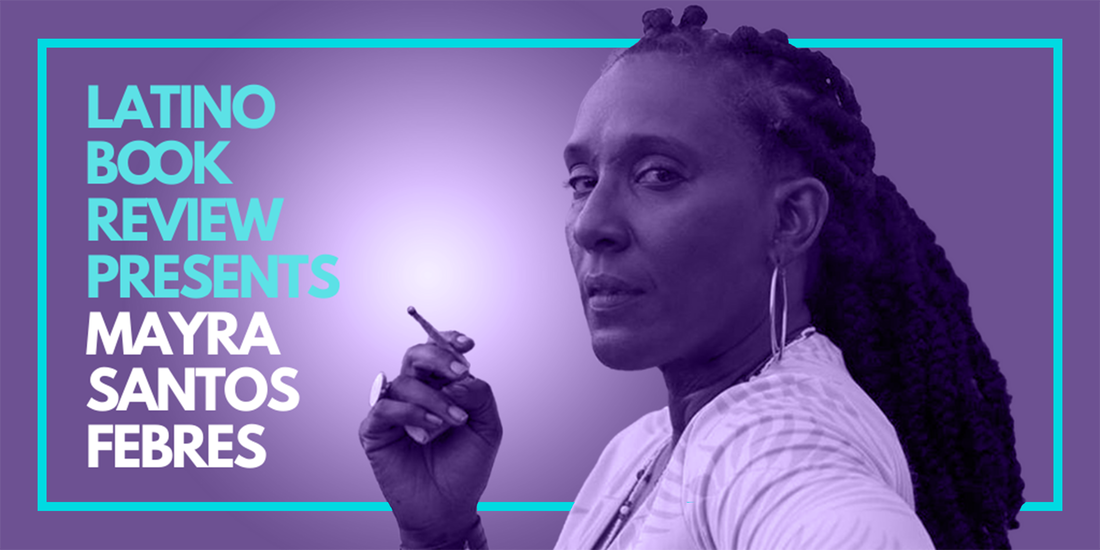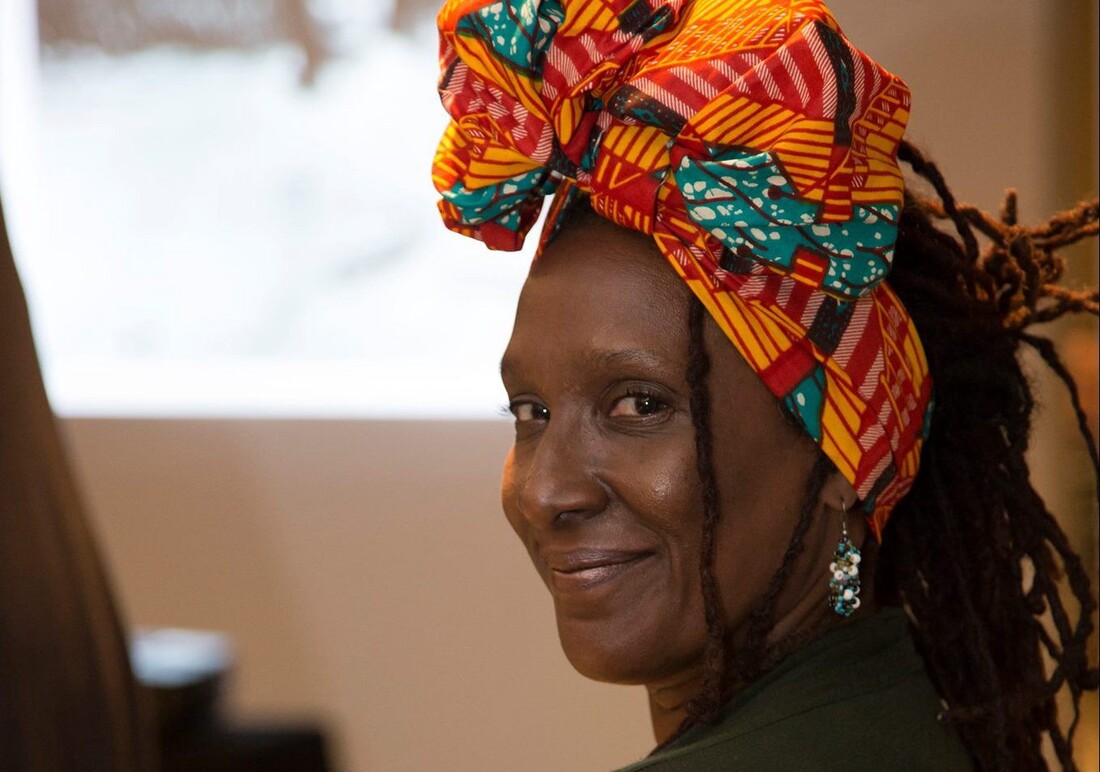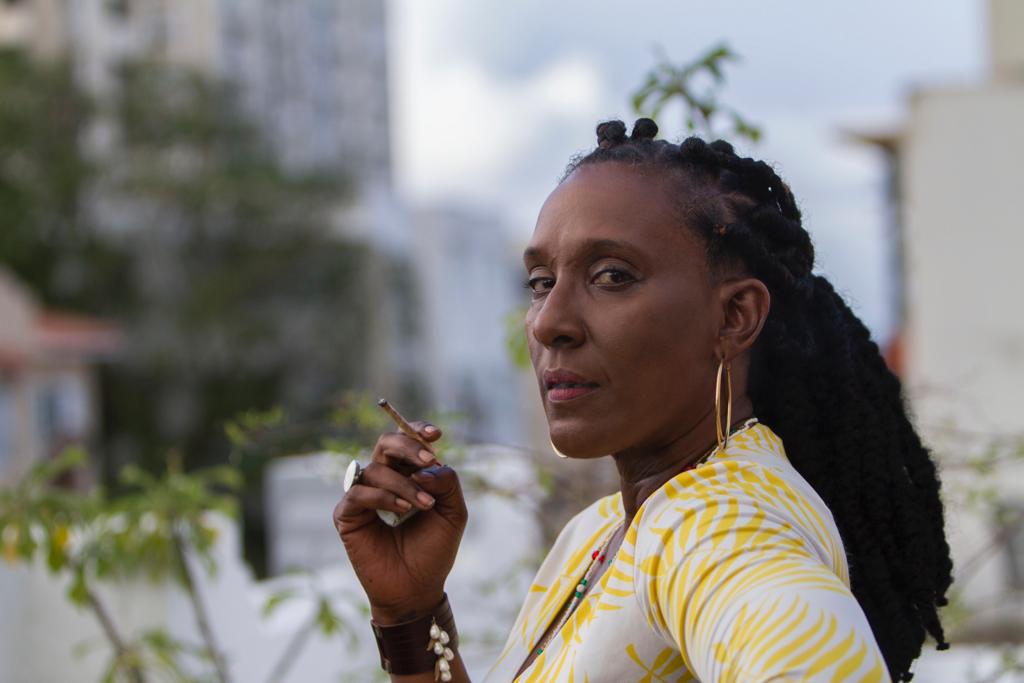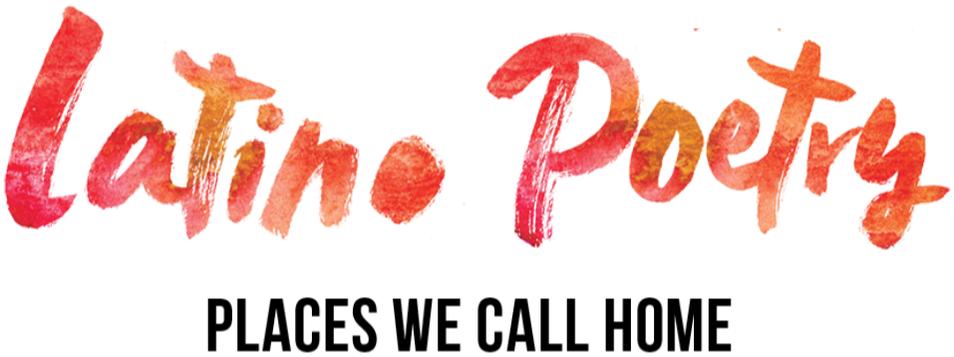VALE RENDÓN: Welcome to Latino Book Review Presents, a podcast focused on bringing you the best of Latinx literature. We are with Mayra Santos-Febres. She's a Puerto Rican author, and today we're going to talk about her career and about how she has been developing her writings. Mayra, welcome. And the first question I have for you is, when did you know that you wanted to be a writer?
MAYRA SANTOS-FEBRES: Well, hi and hi the audience of the Latino Book Review, I cannot tell you the date or the moment, I only knew that by the time I was 13, 14 years old, I knew I wanted to be a writer, but I suppose and I suspect it started a couple of years or maybe four years before.
RENDÓN: And I read somewhere that you started writing when you were five.
MAYRA SANTOS-FEBRES: Well, hi and hi the audience of the Latino Book Review, I cannot tell you the date or the moment, I only knew that by the time I was 13, 14 years old, I knew I wanted to be a writer, but I suppose and I suspect it started a couple of years or maybe four years before.
RENDÓN: And I read somewhere that you started writing when you were five.
SANTOS-FEBRES: I started writing when I was very, very young. I was five years old. Actually, I started learning how to write by writing poetry. My mother was a teacher of Spanish and my father was a teacher of history in high school, my mother in elementary school. And because she knew me, and because she was a teacher, she started playing games with me—rhyme games, word games, and I got so astonished and enamored of that. Like all black mothers, Afro Puerto Rican mothers and Afrolatina mothers, my mother worked very, very hard. And those moments were very intimate between her and me. So we started playing games, playing reading games and making verses and rhymes. And I never stopped. And then when I was 14, and all of a sudden I felt this incredible urge to be a writer, but I was very scared of how would I survive? How would I make a living out of this because we lived in a very precarious situation like many people on earth, you know, regardless of race, but it helps when you are an Afrodescendant and when you Latino, when you're woman, and when you are a racialized or a marginalized person. That's how it happened. You know, it happened very, very slowly. And literature was a game, an intimate and very secret game
RENDÓN: And being an Afrodescendant and Latina as well, how hard have you found it to be a writer?
SANTOS-FEBRES: Being a writer is hard because there is this definition of writers in our countries and in our culture that says that if you become a writer or an artist of any sort, you are going to die on hunger. So being a writer is hard. There are a lot of ways to become a professional person—teacher, or a nurse, or a lab technician, or doctor, but to become an artist, even if you can go to university and get some training, that doesn't solidify the fact that you have become one, and you can graduate from Fine Arts and never be an artist. It is hard. Then the issue of money, of course, especially when literature and arts are defined in our cultures as an activity that produces both, or this product, that is for leisure and luxury—leisure and luxury. And that is a very weird definition of artists for an Afrolatina. That is a Eurocentric view of what is art, because for us it's basically about recuperating memory and telling the stories and raising the voice and exploring an aesthetic that is devalued. So it has a political edge. It has an arts and community connection, very, very strong. And you become a public speaker, and a public teacher, a public personality in your community. And that's what artists are. We are the voices, and the memory, and the explorers of an aesthetic, and a sensibility, and a philosophy that has been silenced and devalued. And to understand that, it's so difficult because you want to be validated, you want to win prizes and you want to be able to publish and you want to be able to teach or to eat, or to find work. It is very difficult to accept the fact that this is what an artist is in our communities and that we have to embrace it and fight for it and join forces for a more just and dignified position, social position.
RENDÓN: Do you think there is a space for Latinx literature in the US? Or do you think it's kind of a forgotten topic?
SANTOS-FEBRES: Well, I don't think it is a forgotten topic. It was a nonexistent topic. And now there are bookstores, and there are the Latino Book Awards, and there is a circuit that is connecting, and I hope that it connects more the Latino community in the diaspora all over the place because it is needed. And I am very, very hopeful of what's happening with Latino scene. I am not that interested in it becoming mainstream, because I don't care. I mean, I don't want to be mainstream. And I think that mainstream in many places in the world, especially in the United States, people, for instance—I go a lot to Spain and to Mexico and to Guatemala and Colombia, all over the place—and the situation is much the same. And also in the United States, which is that 37% of the population are the ones who read, 37%, and that's one of the highest percentages. And what they read, you know, what is sold as mainstream literature, I don't like it very much—very simplified, industrialized, Dan Brown stuff. I don't want to write like that. I want to write things that give me the chance to explore more than to be particularly obsessed with figures of sales. And I don't mind, I hope that the people who enjoy that and enjoy very, very, very rich, continue enjoying being very, very, very rich. But that's not my intention. My intention is to write things that can convey a vision of the memory lost, of a way of living in the world.
SANTOS-FEBRES: Being a writer is hard because there is this definition of writers in our countries and in our culture that says that if you become a writer or an artist of any sort, you are going to die on hunger. So being a writer is hard. There are a lot of ways to become a professional person—teacher, or a nurse, or a lab technician, or doctor, but to become an artist, even if you can go to university and get some training, that doesn't solidify the fact that you have become one, and you can graduate from Fine Arts and never be an artist. It is hard. Then the issue of money, of course, especially when literature and arts are defined in our cultures as an activity that produces both, or this product, that is for leisure and luxury—leisure and luxury. And that is a very weird definition of artists for an Afrolatina. That is a Eurocentric view of what is art, because for us it's basically about recuperating memory and telling the stories and raising the voice and exploring an aesthetic that is devalued. So it has a political edge. It has an arts and community connection, very, very strong. And you become a public speaker, and a public teacher, a public personality in your community. And that's what artists are. We are the voices, and the memory, and the explorers of an aesthetic, and a sensibility, and a philosophy that has been silenced and devalued. And to understand that, it's so difficult because you want to be validated, you want to win prizes and you want to be able to publish and you want to be able to teach or to eat, or to find work. It is very difficult to accept the fact that this is what an artist is in our communities and that we have to embrace it and fight for it and join forces for a more just and dignified position, social position.
RENDÓN: Do you think there is a space for Latinx literature in the US? Or do you think it's kind of a forgotten topic?
SANTOS-FEBRES: Well, I don't think it is a forgotten topic. It was a nonexistent topic. And now there are bookstores, and there are the Latino Book Awards, and there is a circuit that is connecting, and I hope that it connects more the Latino community in the diaspora all over the place because it is needed. And I am very, very hopeful of what's happening with Latino scene. I am not that interested in it becoming mainstream, because I don't care. I mean, I don't want to be mainstream. And I think that mainstream in many places in the world, especially in the United States, people, for instance—I go a lot to Spain and to Mexico and to Guatemala and Colombia, all over the place—and the situation is much the same. And also in the United States, which is that 37% of the population are the ones who read, 37%, and that's one of the highest percentages. And what they read, you know, what is sold as mainstream literature, I don't like it very much—very simplified, industrialized, Dan Brown stuff. I don't want to write like that. I want to write things that give me the chance to explore more than to be particularly obsessed with figures of sales. And I don't mind, I hope that the people who enjoy that and enjoy very, very, very rich, continue enjoying being very, very, very rich. But that's not my intention. My intention is to write things that can convey a vision of the memory lost, of a way of living in the world.
RENDÓN: From that perspective, do you think books have some sort of soul that can be transmitted?
SANTOS-FEBRES: It's funny because I write literature and poetry and essays, but I'm also very interested in how the mind works. And there is this concept called qualia. Qualia is a really funny concept because it means that two people cannot perceive, for instance, the color red the same way. Personal experience of you looking at the color red cannot be transmitted to another person, that is qualia—that processing in your brain between perception and sensations, emotions and actions, that combustion piece. And a lot of people say it cannot be translatable. Your experiences of the color red, what you see, cannot be translated. Well, I think that art is one thing that the human beings, that us as human beings, have developed in order to try to convey the experience of a color, of being alive, of watching the video of George Floyd being murdered by a cop, being scared and looking at your son and saying "what's going to happen to him," to him as an Afrodescendant, and as a Latino, and what can I do? The situation of finding that you don't have air, that you cannot breathe—that, literature can convey qualia, that weird perception, that combustion of connections that happen in your brain when you see something, when perceive a stimulus. And I think that art might not be able to translate it bit by bit, but it is born from that impossibility, and that is good, you know, not all impossibilities are bad. So I think that art and especially literature is really good at teaching people how to be compassionate and how to put yourself, put themselves, in other people's shoes and trying to bridge the unbridgeable, which is to live through other people's perception. It gifts the eyes of the beholder, not the eyes of the writer, and that is a wonderful gift. That is absolutely wonderful—and that books—it's okay if they entertain, it's okay if they teach—but what they teach in a very profound level is to be human. Listen to the entire interview on our podcast below.
SANTOS-FEBRES: It's funny because I write literature and poetry and essays, but I'm also very interested in how the mind works. And there is this concept called qualia. Qualia is a really funny concept because it means that two people cannot perceive, for instance, the color red the same way. Personal experience of you looking at the color red cannot be transmitted to another person, that is qualia—that processing in your brain between perception and sensations, emotions and actions, that combustion piece. And a lot of people say it cannot be translatable. Your experiences of the color red, what you see, cannot be translated. Well, I think that art is one thing that the human beings, that us as human beings, have developed in order to try to convey the experience of a color, of being alive, of watching the video of George Floyd being murdered by a cop, being scared and looking at your son and saying "what's going to happen to him," to him as an Afrodescendant, and as a Latino, and what can I do? The situation of finding that you don't have air, that you cannot breathe—that, literature can convey qualia, that weird perception, that combustion of connections that happen in your brain when you see something, when perceive a stimulus. And I think that art might not be able to translate it bit by bit, but it is born from that impossibility, and that is good, you know, not all impossibilities are bad. So I think that art and especially literature is really good at teaching people how to be compassionate and how to put yourself, put themselves, in other people's shoes and trying to bridge the unbridgeable, which is to live through other people's perception. It gifts the eyes of the beholder, not the eyes of the writer, and that is a wonderful gift. That is absolutely wonderful—and that books—it's okay if they entertain, it's okay if they teach—but what they teach in a very profound level is to be human. Listen to the entire interview on our podcast below.
Comment Box is loading comments...
|
|










